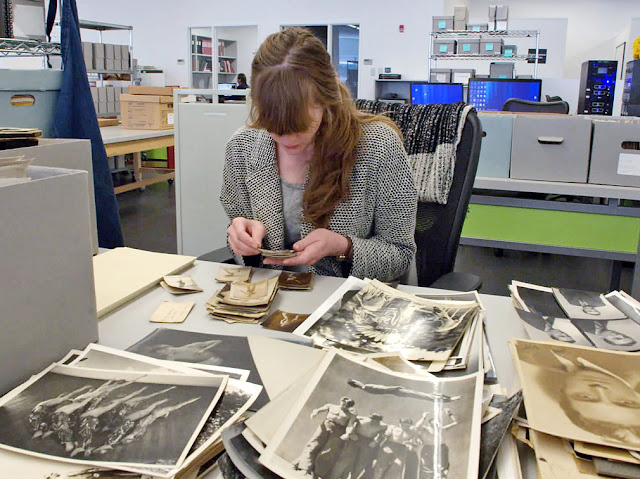In 'Ex Libris - The New York Public Library’,
the latest documentary epic from Frederick Wiseman, the 87-year old filmmaker surveys the hallowed halls and musty stacks of the titular institution. Shot
over a 12-week period in late-2015, it focuses on the flagship Fifth Avenue
building, but also a number of smaller branches throughout the city. Wiseman's
distinctive approach to his subject, honed over more than 50 years and 40 plus
features, is as effective as ever, and remains reassuringly unchanged. His
camera is still keenly observant and all but invisible, his montage still among
the most rigorous and subtly associative in documentary film, and as usual, his
topic is two-fold: an institution, and the people who constitute, operate and
collectively define that institution.
Like the floating narrative eye of a
modernist writer, Wiseman and his crew seem to be everywhere at all times, and
move seamlessly between various locations and social contexts. They drop in on
top library executives deliberating on multi-million dollar budget decisions
and local branch personnel dutifully serving their clients, grade schoolers
crunching numbers in after-school programs and elderly members of a reading
club bringing their wisdom to bear on literary classics. During lavishly staged
events, preeminent intellectuals like Richard Dawkins and Ta-Nehisi Coates weigh in on history and the state
of American affairs, while elsewhere, card-holding members congregate to
discuss similarly pressing issues in more immediate terms. In one particularly
memorable scene, black residents at a small West Harlem outpost hold an
impromptu town hall meeting where they call attention to discriminatory
practices, blatantly systematic and implicit, that harm and hinder their
community. The result of these varied moments and perspectives, pieced together
with adroit, artful editing, is a staggeringly intricate mosaic of the great
establishment, a pointillist panorama that justifies every setup, and every
last minute of its lengthy, three hour plus runtime.
If you’ve not yet picked up on it, the true
subject of ‘Ex Libris’ is not books or even the buildings that serve as their
repositories, but the supremely democratic, almost utopian idea of the library
as a public portal to education, and thus, shared social standing. Following
through on the premise of his underrated 1990 feature ‘Central Park,’ Wiseman
posits a broad-minded, all-inclusive, public-private partnership as a microcosm
of society as it could be, imperfect but ultimately worth aspiring to. In his
benign vision, each individual who engages in the pursuit of knowledge at the
library is doing his or her part to realize that ideal, from the curious schoolgirl
seeking computer access to the hard-pressed man and woman sitting in an adult
education class or standing in line at a job fair. Taken in the larger context
of the director’s body of work, it would seem that the warm, hopeful
portraitist of present has finally and definitively eclipsed the documentarian
as a young man, the fierce cinematic muckraker responsible for groundbreaking
exposes like ‘Titicut Follies’ and ‘Law and Order’. If that is the case, the
arrival of late-career Frederick Wiseman could not have come at a better time.

